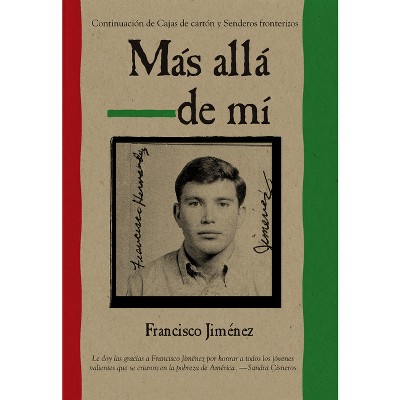Sponsored

Celia En Cuba: 1925-1962 / Celia in Cuba: 1925-1962 - by Rosa Marquetti (Paperback)
In Stock
Sponsored
About this item
Highlights
- International Latino Book Awards 2025 - Mejor biografía.
- Author(s): Rosa Marquetti
- 448 Pages
- Biography + Autobiography, Music
Description
About the Book
Previously published: Madrid, Espaäna: Desmemoriados, 2022.Book Synopsis
International Latino Book Awards 2025 - Mejor biografía. MEDALLA DE BRONCE
«Historia del entretenimiento, una combinación maravillosa para un crítico, un fan y un aficionado a la música.» --Comentario de los jueces del ILBA
DESCUBRE LOS ORÍGENES DE «LA REINA DE LA SALSA»A casi cien años de su nacimiento, el mito de Celia Cruz no se desvanece. A partir de una exhaustiva investigación, Rosa Marquetti recupera su legado, los inicios y desarrollo de la carrera de la más universal de las cantantes cubanas.
Celia en Cuba (1925-1962) no es una novela, un libro de anécdotas o un ensayo: es todo eso y mucho más. Mediante una apasionante y precisa narración, con testimonios de primera mano, la autora recrea el mundo habanero donde se desarrolló la carrera de Celia Cruz: los clubes, teatros,
programas de televisión y de radio, y las grabaciones discográficas donde brilló desde el inicio. Era el mundo del Tropicana, el Montmartre, el Sans Souci, la cadena de televisión CMQ, Radio Progreso, el Teatro Blanquita y de la llegada de los grandes hoteles gestionados por la mafia de Estados Unidos. La autora sitúa a Celia Cruz en ese convulso panorama, iluminando la compleja relación de la artista cubana con el clima social de esa época y el comienzo de la política imperante en su país a partir de 1959.
International Latino Book Awards 2025 - Best Biography. BRONZE MEDAL
«Entertainment history, a marvelous combination for a critic, a fan, and a music aficionado.» --Insight from the ILBA judges
DISCOVER THE ORIGINS OF "THE QUEEN OF SALSA"Almost a hundred years after her birth, the myth of Celia Cruz does not fade away. From
an exhaustive investigation, Rosa Marquetti recovers the legacy, the beginnings
and development of the career of the most universal of Cuban singers.
Celia in Cuba (1925-1962) is not a novel, a book of anecdotes or an essay: it is all that and
much more. Through an exciting and precise narration, with first-hand
testimonies, the author recreates the Havana world where Celia Cruz's career
developed: the clubs, theaters, television studios and radio booths, and the
recordings where she sparkles from the beginning. It was the world of
the Tropicana, the Montmartre, the Sans Souci, the CMQ television network,
Radio Progreso, the Blanquita Theater and the arrival of the large
hotels managed by the United States mafia. The author places Celia Cruz in this
convulsive panorama, highlighting the complex relationship of the Cuban artist
with the social climate of that time and the beginning of the prevailing politics
in her country from 1959 onwards.
Shipping details
Return details
Guests also viewed











